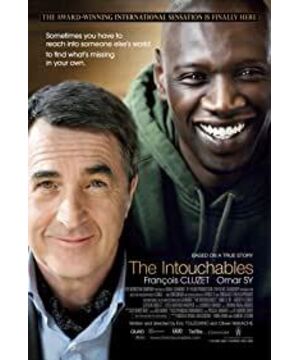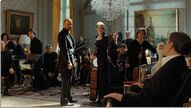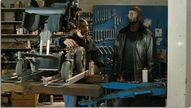Ninety-five years ago, a German secondary school teacher named Spengler published a book that would have a huge impact in the future-"The Decline of the West". In this masterpiece, which was completed under the dark candlelight of World War I, he proposed for the first time that culture, like everything in nature, is an organism, with four stages of birth, development, maturity, and decline. Western civilization has passed the period of creation and is heading for an irreversible decline.
Ninety-five years ago, a German secondary school teacher named Spengler published a book that would have a huge impact in the future-"The Decline of the West". In this masterpiece, which was completed under the dark candlelight of World War I, he proposed for the first time that culture, like everything in nature, is an organism, with four stages of birth, development, maturity, and decline. Western civilization has passed the period of creation and is heading for an irreversible decline.
Philip sitting in a wheelchair is a representative of today’s white European elites. The film shows his upper-class life from multiple angles: materially he has luxury cars and mansions, he is rich, and he is not bad money; there is no cultural life. Vaguely, watching opera, listening to classical music, making pen pals, buying paintings that the people don’t understand but dyingly expensive, playing sports that ordinary people don’t dare to play and are thrilling. In a word, this is a hugely rich life in terms of money and spirit. It is almost the best life state that humans can reach today. But by the way, he is a paralyzed person from a high position. Although the strong financial strength has maintained Philip's freedom to the maximum, allowing him to live, entertain, and even fall in love like a normal person, it can never heal the pain in his soul-the ghost pain. On the surface, his pain stems from the usual self-esteem of the weak. Because he can't bear to be treated as disabled and received special attention, he deliberately found a caregiver who did not treat himself as a patient. But the shock brought by the heartless De Hiss is obviously far beyond the words "friendship".
Compared with Philip, the black De Hiss is almost nothing + nothing (the prototype of this character is an Arab with North African descent, the film is changed to black), no house, no car, no job, no education, no girlfriend, and he was recently swept out by his adoptive mother. There are petty thefts, violent crimes, jail and drug abuse in his life. However, this black youth from the lower class seems to have a particularly insensitive power that is different from ordinary people. Not only is his mental quality super strong, but he also feels extremely good about himself. He boldly seduce Philip's assistant Margaret, completely without fear of the other party's repeated teasing; In the galleries and in the theater, he publicly expressed his ignorance of "high art" and ignored the boos and disdain of people around him. Merely using the fearlessness of the ignorant to explain, I am afraid it is really underestimating the role of De Hiss. What he reveals is actually a kind of "reactional" to social civilization-his logic of thinking, words and deeds are all consistent with Modern social norms run counter to. This is what really shocked Philip.
From the ancient times to today, human society has derived and established a complete and complete civilization system (for example, the "ritual" that Confucius esteemed). This system guarantees the benign operation of the entire society, and we are in Among them, he began to receive enlightenment from childhood, and finally the influence of civilization penetrates into the hearts of the people and is deeply ingrained in everyone's mind. From a general perspective, the benefits of civilization clearly outweigh the disadvantages. Such as compassion. When facing a handicapped person, the first response of modern people is sympathy (this has been trained to be almost instinctive). After all, we have gone through the barbaric era of throwing the disabled and the sick into the mountains and letting them fend for themselves. Providing help to the weak is one of the basic moral codes of modern society. Another example is the hierarchical system. Human beings have entered a hierarchical society for thousands of years and have still not been able to eliminate the differences between classes. In the current society, although common people can also marry into the royal family, various barriers have been broken, but inequalities in marriage, education, and opportunities still exist among different classes. Another example is the ritual of men and women, primitive people living in groups, group marriages, there is no concept of male and female guards, affection can be moved, just ask for love directly, without too much scruples, civilized society began, humans sprouted marriage, family and related With various regulations and restrictions, Chinese Confucianists even put forward the idea of “not giving or receiving marriage between men and women”, and even direct submission of goods is prohibited, which is considered to be a hindrance to etiquette and law. All of these have constituted a magnificent history of human civilization, and we have benefited from this, and we are also subject to it. What makes De Hiss unique is that he does not have the string and frame of "civilization" in his mind. In today’s Europe, De Hiss is an alternative existence. He doesn’t know how to be humble, he doesn’t know manners, and he is not burdened with thinking because of his poor degree and low background. He is racing wildly on the highway without a driver’s license and seeing others chaotic. Stop and go straight up with old punches. However, the so-called rudeness is the passport of the rude person. His primitive and savage method is actually very useful in a civilized society. For him, if he likes a woman, he just invites to go to bed and take a bath. Why take time to tease and flirt? Like Philip, he chooses to talk with women in words and pens, and he doesn't even make a phone call. In his eyes, it is not so much "elegance" as it is abnormal. De Hess has not received much education. He neither understands opera, classical music, modern painting, nor basic knowledge of medical care. What is more, he lacks the minimum "sympathy" for the disabled: for example, he goes with boiling water. Scalding Philip's legs to test whether the paralyzed patient is really unconscious. This kind of inhuman behavior is really cruel, and people with a more normal mind can't accept it. As for the class differences and racial discrimination that modern people are most keen to discuss, De Hiss is very This is even more ignorant. He didn't regard Philip as his employer (also not a patient), and ignored Margaret as a white woman. He was not afraid of being fired by the boss or being afraid of women's laughter. He was calm about the two things that ordinary people are most vulnerable to injury.
But not being a civilized person does not mean that there is no merit. In the film, De Hiss's merits are gleaming like gold. He is humorous, honest and innocent, reflecting the good side of human nature. This kind of innocence is the result of the beauty of human nature itself and the non-civilization, and the seriously ill Philip was completely conquered by it. Because although he has everything created by civilization, he lacks two things: vitality and vitality. If Philip is regarded as a self-portrait of old Europe, then his paralysis is a metaphor for European civilization's own destiny. The wheelchair is a tool and a bondage, relying on it, being trapped in it, and finally dying irretrievably. It was Desis, a young black man from Africa, the birthplace of mankind, who was almost insulated from the laws of modern society. He gave the desperate middle-aged white man a shot, and he intervened in Philip's life in an anti-civilization way. To rescue him from the suffocating golden shackles. Although he could not physically cure Philip's severe illness, mentally, he got him out of the wheelchair and was reborn. He pushed him for a walk along the Seine in the middle of the night and competed with police cars on the Paris Ring. The excitement of these experiences was no less than flying a glider in the sky, although the latter seemed more civilized. Cross-racial and cross-class emotions have been the theme that Europeans have been paying attention to. In the repeated and in-depth discussion, they look back, reflect, and reflect, and then seek new possibilities. In this regard, the declining West is still respectable, just as moving as the film.
View more about The Intouchables reviews









